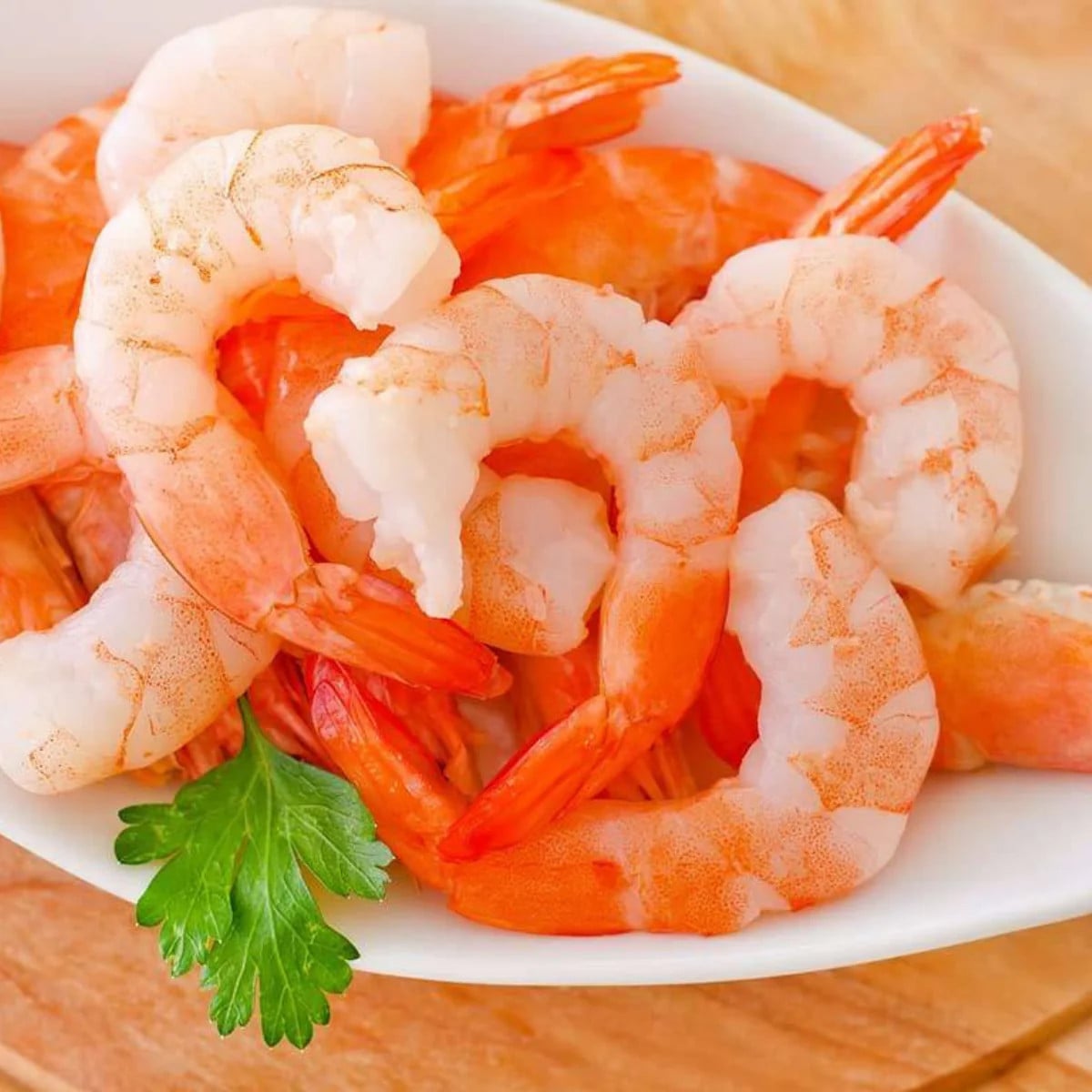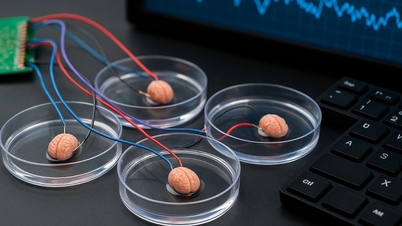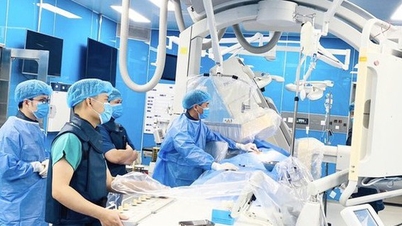When eating shrimp, you need to be careful because this type of seafood often causes allergies and may contain small amounts of mercury and antibiotics.
Shrimp is a familiar food in family meals. In the US, this is the most consumed seafood. "Not only is it a healthy source of protein, shrimp also contains selenium, copper and B12, which are good for metabolism," said nutritionist Amanda Lane.
Nutritional value
Data from the US Department of Agriculture shows that 85g of cooked shrimp contains 100 calories, 1.4g of fat, 0.25g of omega-3, 1.3g of carbohydrates, 19.4g of protein, selenium (76% of daily requirements), vitamin B12 (59%), copper (24%), phosphorus (21%), choline (21%).
According to Livestrong , shrimp is high in protein, low in calories, and rich in antioxidants that prevent heart disease. Shrimp also contains omega-3, which is good for the brain. The American Heart Association recommends eating 3 grams of omega-3 per day to help lower blood pressure and reduce the risk of heart disease.

Eating shrimp has many health benefits but can cause allergies in some people. Illustration: Allfreshseafood
Besides, shrimp also contains some health hazards:
High cholesterol
85g of prawns has the same amount of cholesterol as an egg. Nutritionist Christina Iaboni says dietary cholesterol doesn't have much of an impact on our cholesterol levels. "Foods high in saturated fat and trans fat are much worse," she says.
However, the cholesterol in shrimp can affect people with lipid disorders, especially those with diabetes or at risk of heart failure. Therefore, according to Circulation , these groups should limit foods high in cholesterol.
May contain contaminants
Like other seafood, shrimp can be farmed or wild-caught. Each has its own health and environmental risks.
According to a US study published in the journal Food Science and Nutrition , both farmed and wild-caught shrimp were found to contain mercury, a chemical that can cause serious health problems such as cognitive delays in children and impaired brain and reproductive function.
However, the mercury content in the tested samples was low and there was no significant difference between the two types of shrimp.
Another potential contaminant in shrimp comes from antibiotics used to keep farmed shrimp healthy. The Food and Drug Administration (FDA) rejects an average of 29% of shrimp imported into the US each year, with antibiotic residues being the second most common reason for rejection, according to statistics released in September 2021.
Common food allergies
According to the American Academy of Allergy, Asthma and Immunology, about 7 million people in the United States are allergic to shellfish, including shrimp and crab. Symptoms include stomach pain, hives, wheezing, difficulty breathing, dizziness, and swelling of the lips and tongue.
Source: https://giadinh.suckhoedoisong.vn/3-moi-nguy-tiem-an-khi-an-tom-172241117073730382.htm





![[Photo] Discover unique experiences at the first World Cultural Festival](https://vphoto.vietnam.vn/thumb/1200x675/vietnam/resource/IMAGE/2025/10/11/1760198064937_le-hoi-van-hoa-4199-3623-jpg.webp)





















![[Photo] Opening of the World Cultural Festival in Hanoi](https://vphoto.vietnam.vn/thumb/1200x675/vietnam/resource/IMAGE/2025/10/10/1760113426728_ndo_br_lehoi-khaimac-jpg.webp)
![[Photo] General Secretary attends the parade to celebrate the 80th anniversary of the founding of the Korean Workers' Party](https://vphoto.vietnam.vn/thumb/1200x675/vietnam/resource/IMAGE/2025/10/11/1760150039564_vna-potal-tong-bi-thu-du-le-duyet-binh-ky-niem-80-nam-thanh-lap-dang-lao-dong-trieu-tien-8331994-jpg.webp)





































































Comment (0)